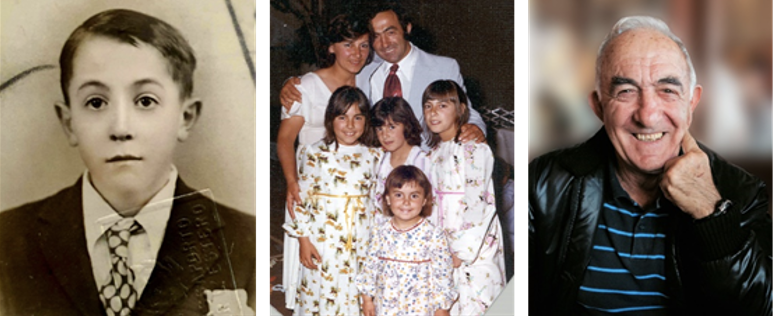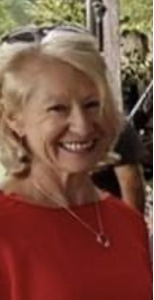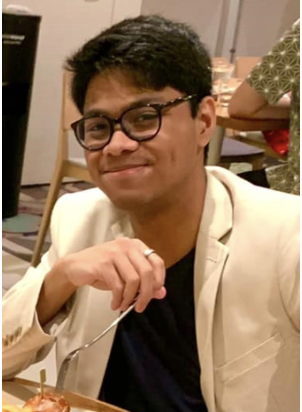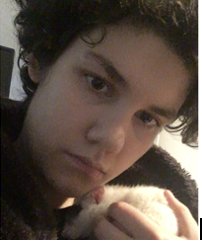‘When did you become like this?’
‘Like this?’ her voice had a cold sting, ‘Meat, be careful with how you speak to me, lest I turn this conversation into a banquet.’
The glass chandeliers chimed as the autumn wind breezed through the dark hall. Dried maple leaves came fluttering in from the open balcony. The only source of illumination was the red glowing eyes of my interviewee. Dressed in a maroon evening gown, she sat on her leather couch holding a goblet filled with red. She stared at me with intense, scarlet, and glimmering eyes.
Her threat, in truth, was just a compulsion that her people couldn’t resist. Scaring anything at any chance they get. I played along, just to get the interview going.
‘Please forgive me, Lady Antanasia.’ I dipped my head. ‘When were you turned into a vampire, may I ask?’
Her shoulders slackened and her brows ceased to crease. ‘It was in the year 1416.’
I checked my recorder in my pocket and it was still running, at least we were getting somewhere.
‘The fifteenth century? How did it happen?’ I proceeded on to the next question.
The couch creaked as Antanasia leaned back into it, her fingers twirling her raven locks.
‘Let us turn this around, whatever your name is,’ she said.
‘It’s Jona-’
‘What do you hope to gain from this interview? Did you seek an audience with me, hoping I’d grant you the gift of immortality?’ there was a smirk at the corner of her lips.
‘No.’ I shook my head. ‘I’d rather not stay in the shadows and restrict myself to one type of drink for eternity.”
‘Hm.’ Antanasia’s eyes narrowed before taking a sip from her goblet. Her fangs were stained in thick red before she licked them clean. ‘Then what are you doing here? Why would a human come to my domain in the cold of night?’
‘Well for one, the secret’s out. Vampires exist in Romania. People, as far west as Hungary, are too afraid to go out at night. And since everyone sees you all as either animals or a cannibalistic cult, I think we’d all benefit if your side is heard.’ I paused, eyeing her cautiously. ‘But the real reason I am here is that my editor-in-chief from The Guardian thought that the story of Lady Antanasia would sell loads.’
The things I do for my career, I’m probably insane.
‘So you came here to satiate your curiosity?’ an elegant chuckle escaped her, ‘Knowing full well you could be drained to a husk or be enthralled? Why do you think I agreed to this interview little one?’
The constant threats were admittedly scary at first, but at that point it got tiresome. In fact, it was getting annoying.
‘You do realise that if I do not check back with my editor-in-chief, he’ll call the calvary over, and pretty much blow this whole place up, right?’ I told Antanasia.
‘How adorable,’ her chuckle resonated through the hall, ‘The humans are trying to show bravado.’
‘I’m just saying what will happen if you try-’
My feet dangled in the air, a cold vice grip tightened on my throat, and I choked out spittle. Antanasia lifted me up in a split second and her nails dug into my neck.
‘I warned you of how you speak to me, meat,’ she bore her fangs and hissed.
I felt blood pooling in my head, my senses were leaving me, but I managed to wheeze out. ‘Okay, prove it to the world then.’
It felt like forever as I ran through all the morbid endings in my head. Whether this vampire was going to bleed me dry, turn me into a thrall, or just crush my trachea. Through my blurry vision, I saw her scarlet eyes narrowing, and her fangs disappearing behind her lips.
‘Hmph,’ Antanasia huffed, before releasing her grip and I plopped onto the onyx marble floor.
‘Well played.’
I rubbed my neck to warm it up after that icy grip, painfully gasping for air. Thankfully, the recorder was still working in my pocket. I got back to my seat and Antanasia to hers. Sporting that same dismissive expression, she took another gulp from her goblet.
‘I’m just gonna forget that ever happened,’ I said to her.
‘Carry on with your interview, whatever your name is.’
‘It’s J-’
‘I suggest you be quick before I get irritated again,’ she cut me off once more.
I rolled my eyes. One would think that someone over six hundred years old would have acquired some semblance of patience.
‘How did it happen?’ I repeated my question.
‘What?’ she raised a brow.
‘How were you turned into a vampire?’
‘What kind of dull question is that? Don’t you have anything more exciting to ask?’ Antanasia groaned and ran her fingers through her locks. That was the second time she avoided the question.
She tapped her finger on the armrest of her couch and said, ‘This is getting boring, meat. You ought to remedy that, or I may get irritated again.’
‘Do you actually remember how you were turned into a vampire,’ I twisted my question, “Or have you forgotten?”
I had nothing to stop my heart from leaping to my mouth when she shot right up into my face. She peered over, forcing me to sink into my chair. Her hiss stung my ears and it rumbled around the hall.
‘Of course I remember! You miserable speck of feculent scum!’ Antanasia bellowed, ‘No amount of time on this God-forsaken Earth will ever make me forget!’
Drops of blood mixed with spittle pattered on my cheeks. Neither of us moved a muscle. Antanasia’s pale face was inches away from mine, her fringe brushed my forehead. She growled before pulling her head back. Antanasia stepped away and glared into the night sky.
‘I remember it was storming when this very coven came to my village in Wallachia,’ her voice was losing that angered tone.
‘A village? From Wallachia?’ I uttered, wiping off the blood and spit on my face.
‘Before it all began, the pens were populated with cattle, the fields yielded bountiful harvests. Everything was plentiful.’
‘You were a farmer? For real?’
I was expecting a princess, or a noblewoman maybe. But a peasant? Lady Antanasia, the bloodthirsty vampire, raised cows? She eyeballed me for a second and I straightened up.
‘Apologies.’
She edged towards the balcony, still having that frown on her face. ‘Indeed I was. My family supplied the village we lived in with barley and milk. It was a good life.’
‘You had a family?’ my eyes perked up.
Antanasia froze. I could see the melancholy and reminiscence in her.
‘I had a husband and a daughter. Adrian and Elena.’
Oh God.
‘Adrian was as strong as an ox from ploughing the fields, but he was also gentle and loving towards Elena and me. Our daughter was so pure and joyful, the child could sing like an angel.’
‘I suppose I don’t need to ask what happened to them.’ I tread cautiously with my words. Antanasia crossed her arms, she kept on staring into the night.
‘The vampires of the Din Ardelean Coven attacked my village in the stormy night with no warning. I remember fire across the fields and the cows disembowelled. The barn, the lumber mill, everything was destroyed. We heard the screaming, and we tried to hide in the house. But they found us, and dragged us out into the storm.’ Antanasia’s crossed arms tightened, and her shoulders trembled.
‘I was the only one, in the whole village, they didn’t kill.’
All the while, my mind tried painting the scene, but there was no way my imagination could recreate what truly happened to her.
‘I’m sorry to hear that, Lady Antanasia.’ I offered my sympathies, as if it was worth anything to her. But I had to ask, ‘Why didn’t they kill you?’
She went back to her seat and carried on with her story, ‘They spared me because the vampire master of this coven wanted me bound to him in his castle. I remember the fiery pain when he bit into me, no other pain could compare. The moment my heart stopped beating, I became one with his coven. He robbed me but gifted me with immortality, and he said he would give me the world.’
Her tone grew bitter, ‘That didn’t happen, as you can see. Centuries passed since he turned me, and he did nothing. He became old, mad, and useless.’
‘Where is he now?’ I asked.
‘I would not suffer his lies any longer, so I took his life and his coven for myself. His head is now on a pike down in the cellar.’
Pretty macabre. Though, well deserved I suppose. I snuck a quick peek at my watch, it wasn’t much longer till sunrise.
‘Okay…so after that, what did you do?’ I asked the next question on my list.
‘Do you need to ask?’ Antanasia snapped back at me, ‘We ruled here in seclusion for centuries. Then somehow the secret of our existence got out and now you’re here,’ she slurped on her goblet.
She started to look dishevelled. She leaned back, stared at the ceiling, and sighed, ‘Unbelievable. It took until now that I get to be truthful, and to a human of all things.’
Ignoring the comment, I asked, ‘What do you mean?’
‘No one has ever asked me what I was before I turned. No immortal undead cared to ask.’ She pointed at me. ‘Then this bastard comes here, asks these questions, and manages to get a rise out of me. So congratulations.’
Antanasia threw her goblet. Admittedly, I flinched when it shattered into the wall, painting it red. ‘That stupid old man. All he ever did was pace around the halls, whining about expanding his coven. But he did nothing!’
She shot up to her feet, her voice echoed through the darkness. ‘My farm! My village! My husband! My daughter! Adrian and Elena! Dead! Because of him! I got turned into a vampire just so I could watch a stupid old man become senile and useless! He took everything from me! So I took everything from him!’
Her ruffled hair and dress flowed with the breeze, bags were forming under her eyes.
‘And yet, there’s nothing. Here I am, hiding in the shadows with the rest of the vampires. Doing nothing but feast until my mind rots. Like that old man.’ Her body trembled. ‘I’m in limbo, going on forever in an abyss with only my memories to tear me apart.’
‘So what is it that you want?’ I calmly asked Antanasia.
She gazed out the balcony again for what felt like ages. She had a thousand-yard stare, and the quivering in her body slowed to a halt.
‘I want to see my family again.’
I stood up immediately, ‘What?’
There was a mix of despondency and resolve in her. ‘I know redemption is beyond me, and I cannot ask for forgiveness. For the lives that I have taken over the centuries, for the pain I’ve inflicted. Whatever happens to the Din Ardelean Coven, I’ll have no part of it. Do what you wish with my story, but I will not carry on like this anymore. I want to be with my Adrian and my dear Elena again.’
She sauntered to the balcony and dawn was almost upon us.
‘Jonathan?’ she turned back to me.
Well, I’ll be dammed. She actually paid attention.
‘Would you stay with me? Until the end?’
I needn’t reply. I turned off the recorder in my pocket and joined her on the balcony. We both stood by the parapet, I felt the air getting warmer.
‘I’d almost forgotten the warmth of the sun. I remember basking under it, with them in my arms.’ Soon after, light was breaking at the horizon, and she turned to me.
‘Thank you, Jonathan. Goodbye.’
‘Goodbye, Lady Antanasia.’

Nicholas Aravindhan grew up in Singapore and is currently studying for a BA in Creative Writing in Sydney. He served in the Singapore Armed Forces as an Ammunition Technician for two years. An enthusiast in palaeontology and Japanese culture, he is currently writing his own novel series, ‘Tokyo Juraki’ which encompasses both elements.






